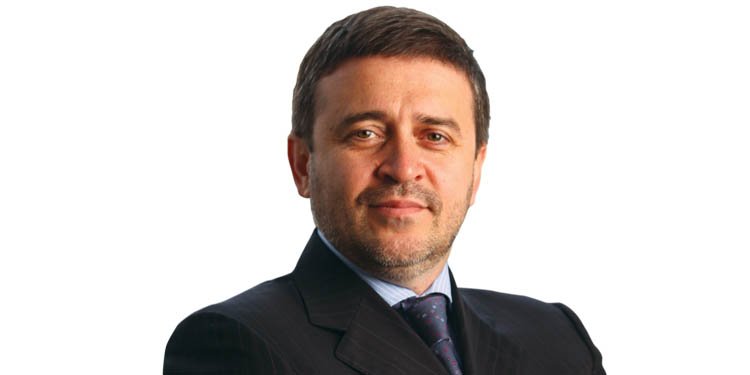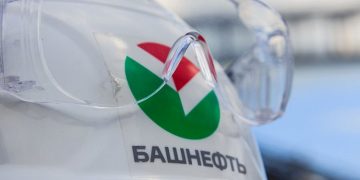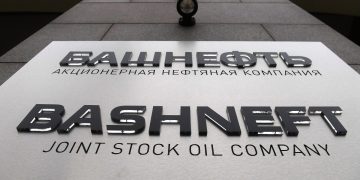The ROGTEC Interview: Kamil Zakirov, CEO of Bashneft Oilfield Services
You have recently been appointed as CEO of Bashneft Oilfield Services, BOS – what are the strategic aims and objectives of the company and your role as the CEO?
Service Assets, which was only recently owned by Bashneft, is a service company offering almost an entire range of services for the oil and gas industry including drilling, well construction, maintenance and repair, mechanical service, artificial lift, equipment manufacturing, transport and construction of field infrastructure. Sistema JSFC, as a new stockholder of this business, envisions a lot of potential for growth and development of this segment. We are using an accepted model whereby the extracting companies and the corresponding service businesses are developed more efficiently by each one operating independently. My priority today is to establish a professional and transparent business in Russia to meet the needs for our wide range of customers. My next challenge will be to ensure technological development and geographical expansion within the Russian market and internationally.
What are the key challenges that you are facing as CEO and what are you looking to improve within the company?
The center stage asset for any services business is of course human resources. The major task is to change stereotypes and thinking approaches. Up until now, our companies quintessentially represented a number of organizations handling tasks established by our parent oil company. Now we are to become an oilfield service company aimed not just at meeting established objectives, but also at thinking ahead to create engineering and operational solutions for the challenges our customers may face tomorrow. This will require a great deal of reconsideration, a change of approach and an adjustment of business culture. We need to learn to earn more by creating more efficient and valuable solutions for the customer. In other words, we will create savings for our customers by earning more for our shareholders. It is clear that such change will require a great deal of well coordinated operations on all levels from our numerous teams.
With BOS now being a completely independent company, what competitive advantages will this create for the company to move forward?
As mentioned earlier, such business sharing aimed at diversifying labour promotes concentration and keeps everyone focused on their core activities. The production company handles extraction and processing, and the oilfield services company concentrates on engineering solutions to help this. Both companies work in a competitive market environment that will help us to choose correct business solutions. Therefore, two goals are achieved – the production company creates a services market around itself and utilizes it so far as necessary, and the Oilfield Services Company has the opportunity to diversify, manage risk and aim for sustainable development.
Traditionally BOS’s main client has been Bashneft, but what are your plans to increase your client base and operating areas and which areas are you looking to target?
Yes, Bashneft has been our main client and we will make all our efforts maintain this relationship, including improving our work and offering the latest engineering solutions. This is also true of other companies in our industry, and this competition will ensure that, as a whole, we move forward.
Our company also has aggressive targets for the external growth and we are also planning active geographical expansion. These include the main oil and gas regions, i.e. Western and Eastern Siberia, Far North and certainly the Volga-Ural region where we traditionally work.
BOS is a service company specializing in several key areas, including on-shore drilling and well workovers, but what other services do you offer? What are BOS’s key service strengths?
Drilling and well workovers are ones of the most developed activities within our company, for sure, however it is far from being all that we can do. As I have already said, we manufacture and service equipment for artificial lift and pressure maintenance as well. We also build a whole range of surface infrastructure and have a large logistical and transportation unit. We can do all the above-mentioned work in an expert, reliable and economical way. But in our case, what we will do in the future is more important. We will become a diversified services company offering a wide product range, a company with a continually developing professional team being able to create new engineering solutions. That is the strategy for our development.
Regarding your drilling services, describe your current drill rig fleet and its capabilities? What plans do you have for modernizing your rig fleet and also for the purchase of new rigs?
When speaking about our fleet of equipment, it is important to mention that our upgrade and modernization program has been approved and is due to be implemented over a 3 year period. This program will ensure upgrade of our fleet and tools to meet today’s market standards. The program includes the purchasing and commissioning of a number of new tools and equipment.
How do you see the regions drilling fleet generally developing in the near to long-term? And where do you see BOS in the future within this market?
Because of the continually complicated drilling conditions that the industry is facing, our focus is on increasing capacity and mobility of our fleet. Our modernization program has been specifically designed to meet these challenges. We will increase the capacity of our rigs, become more mobile, and adapted to use the latest technologies. In short, we should be able to drill faster and construct more complicated wells.
How do you see the Russian Oilfield Service market developing over the coming years?
When working on our development strategy, we analyzed the market and studied its movement and development. We are currently operating in a growth market, and we envisage this continuing for the next 3 – 5 years, followed by a stage of active engineering and development, with most equipment being replaced with more mobile and independent solutions. These trends will be dictated, of course, by economic drivers. The majority of today’s solutions will be too bulky and inefficient, when coming up against remote, difficult to access geological conditions.
Is the issue of HR of more importance to regional service companies or regional operators? And what are your thoughts on Russian O&G Universities, and how they work within this market?
As I discussed earlier in the interview, the issue of human resources is extremely important to us. It is impossible to solve intricate tasks without increasing the proficiency level of the whole team. Companies within this sector are guided by their own priorities and solve these issues the way they see fit.
The significance of a professional school, of course, is extremely high. We are speaking about vocational schools, colleges as well as universities. It is a pleasure to see that after so many years of recession the majority of schools nowadays have received a new impulse of development. Obviously, the results as of today are still not satisfactory. The level of complexity in tasks and technologies is growing rapidly; in its current shape the professional school cannot develop in the same dynamics. Just like the oil industry is regenerating currently, the educational sector is yet to find new tools, methods and principles of education.









